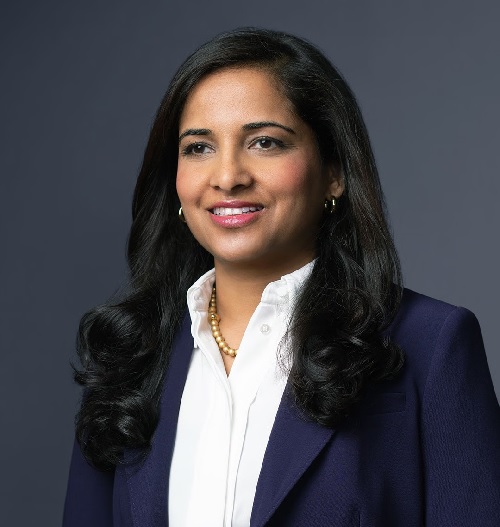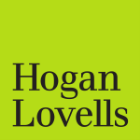Shifting paradigms at a time of great change

As we move toward the end 2025, the world is witnessing profound changes to the underpinnings and application of export controls and sanctions – radical departures from previous administrations’ use of legislation and priorities – while global security issues remain heightened and urgent.
More than ever, developments in trade and sanctions compliance have brought new and often business-critical challenges for Trade Compliance Professionals and their Advisors to respond to and manage.
It is against this background that WorldECR hosts its annual Export Controls and Sanctions Forum. There is much to discuss.
Join fellow trade professionals at the WorldECR Forum as we consider the key issues and themes of the day, including:
- China-US relations – through the prism of export controls and sanctions
- AI: latest on regulators’ attempts to control it (and its use as a compliance helpmate)
- The lessons business can learn from this year’s key sanctions and trade compliance enforcement actions
- The new focus on Mexico and other targets of the Fentanyl FEND OFF Act
- South East Asia Strategic Trade Controls are coming of age
- Extending trade controls to everyday items — Is the future of defence dual-use?
- Where next for sanctions against Russia and those directed at Israel and Syria?
Networking
A busy day of presentations and discussion will end with relaxed and informal networking drinks – an excellent opportunity to wind down and share views with new friends.
Register today
You’ll find all the registration information at the end of this document (or go to https://www.worldecr.com/forums/santa-clara/), but if you do have any questions please don’t hesitate to contact my colleague Mark at mark.cusick@worldecr.com
We look forward to you joining the discussion in Santa Clara in November.
Tom Blass
Editor, WorldECR
Sessions include
Mutual dependency: China and the United States relations in trade controls


Simon Chen, Director, KPMG China
Jeannette Chu, Vice-President National Security Policy, National Foreign Trade Council
Amidst the Trump Administration’s tariffs on China, Chinese retaliation with counter tariffs and blocking of exports of critical minerals, and ongoing negotiations over trade issues, the economic relationship between the United States and China is fraught with tension and complexity. Alongside these economic challenges lies fundamental disagreement on issues including human rights in Xinjiang and Hong Kong and the future of Taiwan.
This session updates our understanding of the Sino-U.S. relationship for the Trump era through the prism of export controls, sanctions, tariffs, and countermeasures, asking key questions such as: Where does trade controls policy fit in the Trump Administration’s approach to China? Will U.S. and Chinese trade controls continue to become more and more restrictive or will there be a detente? What are the trade-offs between export controls and dealmaking between the two sides?
This promises to be a must-attend session for any business with an eye on China trade.
Chipping away? AI export controls after DeepSeek

Thea Kendler, Partner and Co-Leader Sanctions and Export Controls, Mayer Brown, and former Assistant Secretary for Export Administration, BIS
Impetus to up the export control ante was increased at the beginning of the year after China’s DeepSeek revealed unexpectedly strong AI capabilities rivalling established U.S. players.
President Trump has set out his approach to the control of exports of advanced chips used for generative AI in his AI Action Plan, while BIS regulations have departed from the norms established by the Biden Administration, the most recent chapter, the long-awaited BIS 50% Rule, considerably broadening the scope of required due diligence. The resulting, evolving legislative landscape has consequences for exporters — and users — of technology both in the United States and beyond.
In this session, Thea Kendler will review the developments to date and consider the impact of likely further changes — both to technology and legislation — which are undoubtedly on the cards.
AI as a helpmate in the new trade control landscape

Tracy Gronewold, Director of Global Trade Compliance, Hillspire
Against a backdrop of new geopolitical pressures and global power competition, the primacy of the multilateral export control regimes is being overtaken by new agreements on technology sharing — and countries making new additions to their export control lists that exceed the requirements of the Wassenaar Arrangement.
This poses new challenges for technology supply chains especially, demanding greater attention to national requirements and control lists. How should trade compliance teams operationalize overlapping requirements in this new era? And how can AI tools assist?
Tracy Gronewold, Director of Global Trade Compliance at Hillspire, looks to a future where AI is potentially Compliance’s number one ally.
Maximizing data riches: Finding, extracting, and putting trade data to use

Ben Gross, Partner and Trade Counsel at Benjamin S. Gross PLLC and Co-Founder of KargoWatch
In July, the European Union published a Strategic Trade Atlas to promote understanding of global trade flows of strategic goods — i.e., goods of militarily strategic value, including dual-use goods. This isn’t the only source of comparably rich data, but collectively, they’re largely untapped by regulators and industry alike.
In this session, Ben Gross locates the data and sets out use-cases, arguing that intelligent application can enhance both the effectiveness, and the efficiency, of strategic export control efforts.
Update for APAC: South East Asia Strategic Trade Controls are coming of age

Jay Nash, Principal, Nash Global Trade + SUNY Albany
Long regarded as “works in progress”, Strategic Trade Controls (encompassing export controls and other regulatory tools) are coming of age in the Asia-Pacific region, with South-East Asian countries taking positive steps to meet the challenge of semiconductors and other sensitive technologies in their supply chains. Meanwhile, more mature regimes, such as those of Japan and the Republic of Korea, continue to evolve.
In this session, veteran Asia trade control expert and advisor Jay Nash leads a panel setting out the key features of APAC region STCs — and how U.S. companies should prepare accordingly.
US Enforcement 2025: Unravelling the lessons from the agencies


Steven Brotherton, U.S. & Global Export Controls & Sanctions Leader, KPMG LLP
Todd Willis, Director, Global Export Controls & Sanctions, KPMG LLP
Each enforcement action tells a unique story — and each can be a goldmine of compliance learning for businesses. In this session, Steve Brotherton takes stock of the big-ticket enforcement actions in 2025 (such as the OFAC settlements with GVA Capital, Unicat, and Interactive Brokers, and BIS’s agreement with Cadence), peeling away the layers to reveal key takeaways, and considering how they can be applied to daily compliance best-practice.
We are delighted that Steve will be joined by Todd Willis, formerly Global Trade Advisor at Caterpillar, Inc., where he helped create the Caterpillar Trade Center of Excellence with a team of over 90 trade experts, and a former Deputy Director at the Export Enforcement Coordination Center (E2C2) and Senior Policy Advisor within the Office of the Assistant Secretary for Export Administration.
The future of defence is dual-use!


Molly Braese, Head of Global Compliance at Skydio, and former Chief of Staff, Office of the Assistant Secretary for Export Enforcement, BIS
Tracy Gronewold, Director of Global Trade Compliance, Hillspire
Traditional export control regimes distinguish between controls on military USML goods subject in the U.S. to ITAR, and dual-use CCL goods subject to the EAR. But recent conflicts have revealed critical flaws in many traditional defense platforms. They are too big, too slow, and too expensive. Methods of waging conflict are changing, and new, differently controlled technologies are emerging: Artificial Intelligence (running on advanced semiconductors); tiny, attritable drones; and commercial software.
At a time when common household tools and parts have found increasing use on the battlefield and regulators take steps to extend controls on such, Tracy Gronewold and Molly Braese ask, “Is the future of defense dual-use?” It’s a provocative question — here unpacked!
Best practice masterclass: KYC, disclosure – and screening against the BIS 50% rule

Aiysha Hussain, Partner, Mayer Brown
The September 30 introduction by BIS of its new ‘50%’ or Affiliates Rule impacts Trade Compliance professionals from day 1 and is a clear reminder that regulations, guidelines and best practice change – as do the nature and source of threats, and potential violation touchpoints. Amidst the swirl of global events, screening, internal investigations and disclosure remain key to trade control compliance.
Aiysha Hussain will be leading this masterclass on compliance best practice including KYC and screening, client and customer onboarding, conducting internal investigations – and when and how to make disclosures to relevant authorities – against the backdrop of the expectations and messaging from the current administration and its enforcement priorities.
Sanctions Horizon Scan 2026: panel discussion



Steven Brotherton, U.S. & Global Export Controls & Sanctions Leader, KPMG LLP
Andrew Grotto, Director, Stanford Program on Geopolitics, Technology and Governance, Stanford University
Thea Kendler, Partner and Co-Leader Sanctions and Export Controls, Mayer Brown, and former Assistant Secretary for Export Administration, BIS
2025 has seen continued ratcheting-up of sanctions against Russia, the triggering of “snapback” under the JCPOA, and increased U.S. focus overseas — on Latin America, in particular Mexico and Brazil, and on other third-country measures, such as tariffs on India, and designations of Chinese refineries in the context of Russian and Iranian sanctions. Then, at the end of September, BIS introduced a “50%” rule to catch companies associated with EAR-listed entities, introducing new challenges to business.
This session sees panellists scanning the horizon for signs of change and advice on business preparedness and supply chain resiliency
Sponsors:
Register your place at the WorldECR Forum 2025
Date:
November 7, 2025
Registration from 8.20am
Networking drinks reception follows the day’s sessions
Venue:
The offices of KPMG LLP, 2755 Augustine Drive, Suite 701, Santa Clara CA 95054
Individual registration fees
- For delegates from industry/academia/government: $695
- For delegates from legal/professional/consulting firms: $1350
Includes light breakfast, lunch and networking drinks reception.
Terms and conditions
Please note, by registering for this event you accept the terms and conditions below.
Registration Fee
Your fee includes the attendance at both days of the conference; programme materials; and stated refreshments and access to networking receptions.
Registration policy
Delegates may not ‘share’ a registration without the organiser’s authorisation.
Payment policy
Payment must be received in full by the conference date. ‘Additional delegate’ prices are only available to delegates from the same organisation as the original full-fee delegate.
Cancellations and Refunds
You must notify the conference organiser 48 hours before the conference if you wish to change the delegate.
If you wish to cancel your registration, you can do so incurring the following charges:
Cancellation more than 28 days before the event – full refund less 33% admin fee.
Cancellation between 27 and 6 days before the event – full refund less 50% admin fee.
Cancellation between 5 days before and the day of the event – no refund.
Change of venue
The organisers reserve the right to change the venue should attendance numbers so demand.
Change of speaker and presentation
The organisers reserve the right to change speakers and/or presentations.







